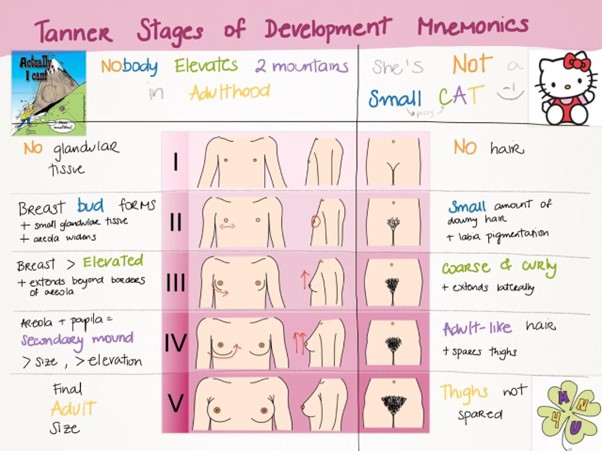A student nurse asks the faculty why peer relationships become more important during adolescence. Which of the following is the nurse's best response?
They provide adolescents with a feeling of belonging
Adolescents dislike their parents.
Adolescents no longer need parental control.
They promote a sense of individuality in adolescents,
The Correct Answer is A
The nurse's best response to the student nurse regarding why peer relationships become more important during adolescence is option A. Peer relationships become significant during adolescence because they provide adolescents with a sense of belonging. During this developmental stage, adolescents are transitioning from a primary focus on their family to a greater emphasis on peer interactions and social connections. Peer relationships offer a sense of acceptance, support, and identity as adolescents strive to establish their own identities separate from their families.
adolescents dislike their parents in (option B), is not a correct or comprehensive explanation for the increased importance of peer relationships during adolescence. While it is common for parent-child conflicts to arise during this stage, it does not imply that adolescents dislike their parents as a general rule.
suggesting that adolescents no longer need parental control in (option C), is not correct. While adolescents are seeking increased independence and autonomy, they still require parental guidance and support. Parental control and involvement continue to be essential in providing a secure and nurturing environment during adolescence.
They promote a sense of individuality in adolescents in (option D), is incorrect. Peer relationships do contribute to the development of individuality by allowing adolescents to explore their own interests, values, and social roles. However, the primary reason for the increased importance of peer relationships during adolescence is the sense of belonging and social acceptance they provide.
Nursing Test Bank
Naxlex Comprehensive Predictor Exams
Related Questions
Correct Answer is B
Explanation
During this stage, adolescents typically experience a shift from a primary focus on family to
an increased emphasis on peer relationships. However, it is still important for adolescents to
maintain a connection with their family and enjoy spending time with family members. This
behaviour indicates a healthy balance between peer interactions and maintaining positive
relationships with family.
The adolescent is self -absorbed and self-centred and has sudden mood swings in (option A)
is incorrect because it describes behaviours associated with emotional and psychological
challenges commonly seen in adolescence but does not indicate appropriate psychosocial
development.
The adolescent seeks validation for socially acceptable behaviour from older adults in (option
C) is incorrect because seeking validation for socially acceptable behaviour from older adults,
may indicate a lack of autonomy and difficulty in developing a sense of personal identity,
which is important for healthy psychosocial development in adolescence.
Conformity with the peer group increases in late adolescence in (Option D) is incorrect
because stating that conformity with the peer group increases in late adolescence, is not
entirely accurate. While peer influence is significant during adolescence, there is also a
growing emphasis on individuality and the development of one's own identity. Adolescents
may experience a balance between conforming to certain aspects of their peer group and
asserting their unique traits and interests.
Correct Answer is D
Explanation
Tanner staging is a method used to assess and describe the development of secondary sexcharacteristics during puberty. It is primarily focused on the physical changes that occur asindividuals transition from childhood to adulthood. The Tanner scale consists of differentstages(ItoV)that describethedevelopmentofspecificsecondarysexcharacteristicssuchasbreastdevelopment, pubichairgrowth,genital development,and facialhair growth.
Growthhormonesecretionin(optionA)isincorrectbecauseWhilegrowthhormonedoesplay a role in the overall growth and development of individuals during puberty, Tannerstagingdoes not specificallymeasureor assessgrowth hormone secretion.
Hormone levels in (option B) is incorrect because While hormone levels, including sexhormonessuchas estrogenandtestosterone, doplayasignificantrolein thedevelopmentofsecondary sex characteristics, Tanner staging itself does not involve measuring or assessinghormone levels. Hormone levels can be assessed through laboratory testing, but this is aseparateprocess from Tanner staging
Hyperthyroidism in (option C) is incorrect because Hyperthyroidism, on the other hand, is amedical condition characterized by an overactive thyroid gland that produces an excessivenumberofthyroidhormones.Itisnotdirectlyrelatedtothedevelopmentofsecondarysexcharacteristics. Diagnosing hyperthyroidism typically involves assessing symptoms,conductingphysicalexaminations,andperformingspecificbloodteststomeasurethyroidhormone levelsandevaluatethyroidfunction.

Whether you are a student looking to ace your exams or a practicing nurse seeking to enhance your expertise , our nursing education contents will empower you with the confidence and competence to make a difference in the lives of patients and become a respected leader in the healthcare field.
Visit Naxlex, invest in your future and unlock endless possibilities with our unparalleled nursing education contents today
Report Wrong Answer on the Current Question
Do you disagree with the answer? If yes, what is your expected answer? Explain.
Kindly be descriptive with the issue you are facing.
